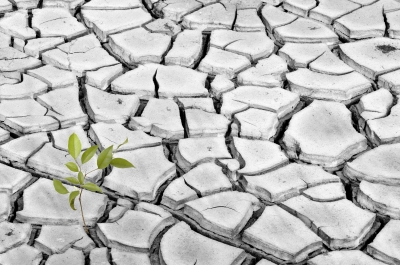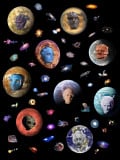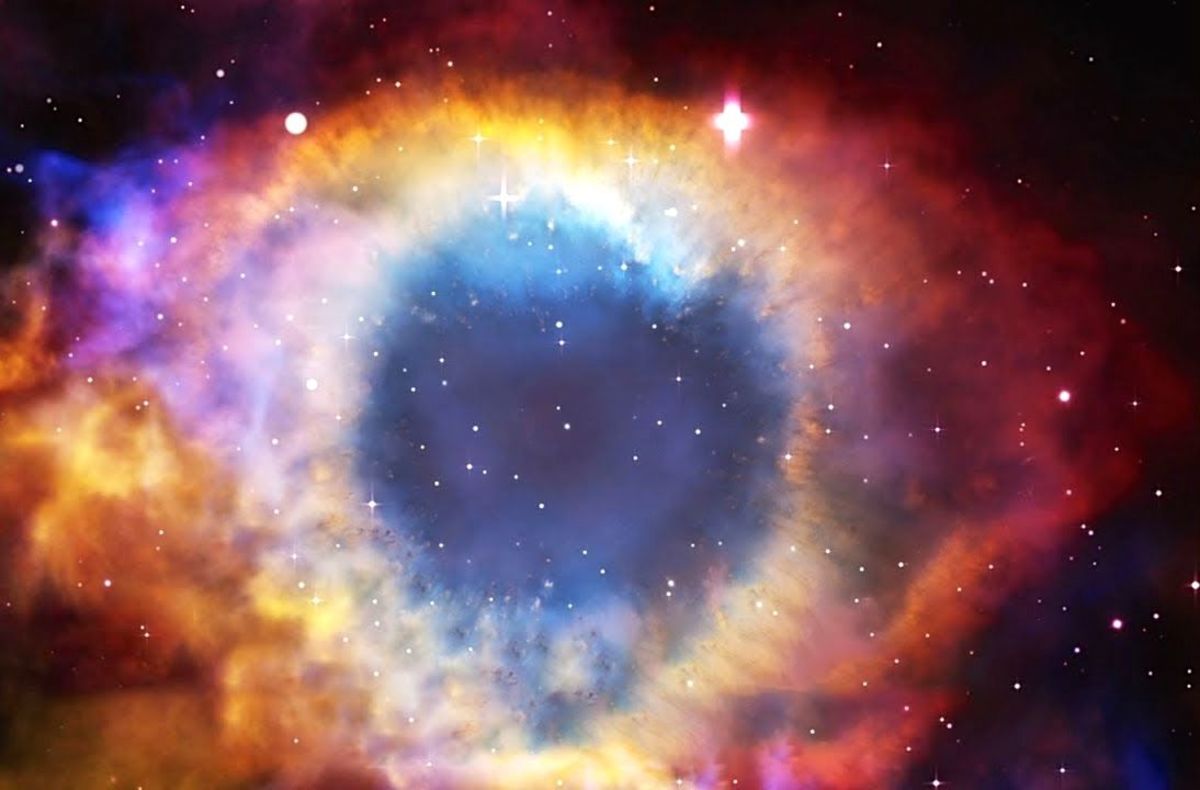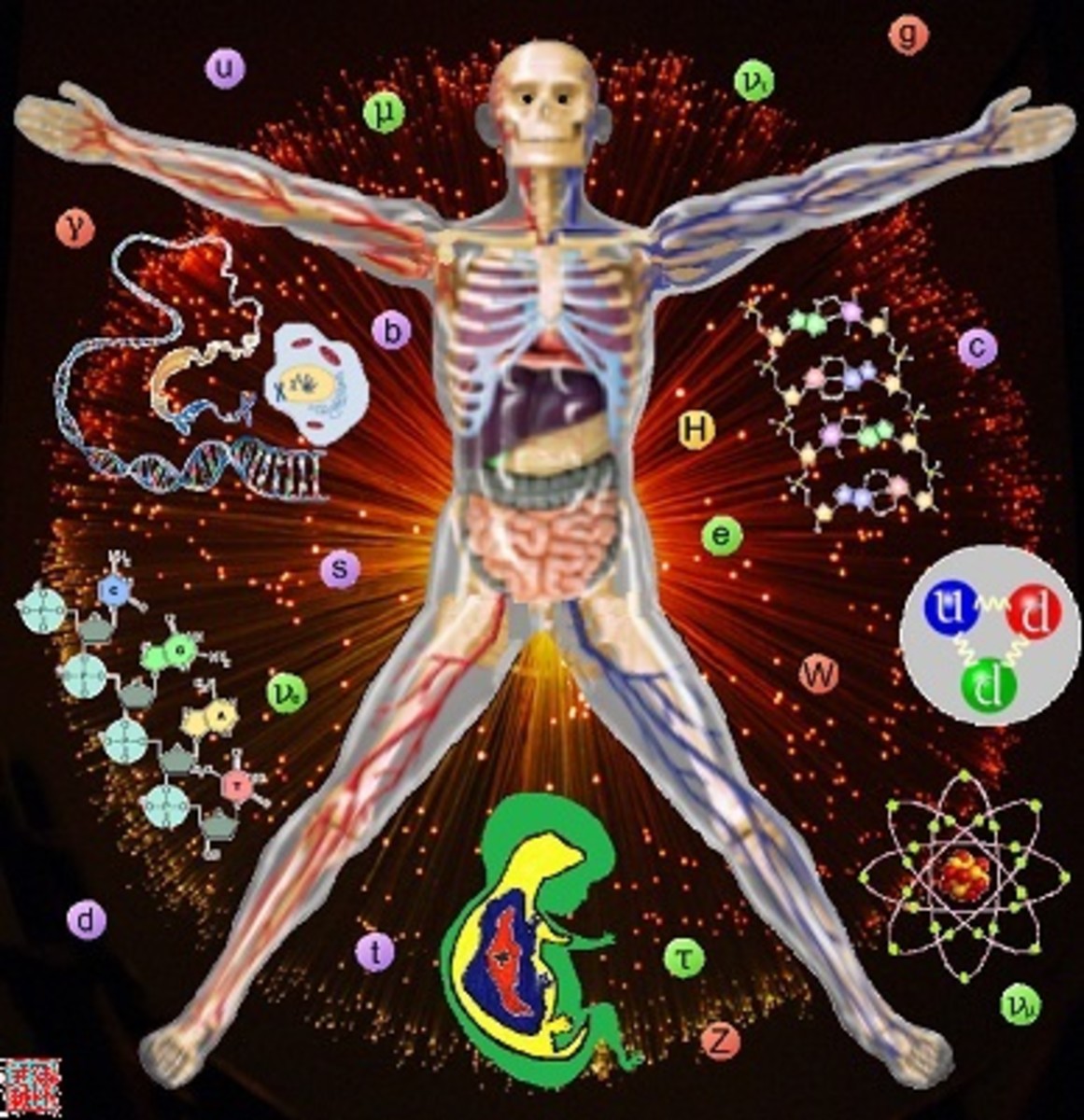How did Life Begin?

The Origin of Life on Earth
How Life began on Earth is one of the greatest mysteries of our existence. We have developed so far that we are the only known species to ponder and pontificate over our origins. In fact, it seems to be hard-wired into our very being to wonder about the origins of life. Philosophers have been ruminating on this matter for thousands of years; from the Egyptians, to the Greeks, to the major religions of today, priests and pontiffs alike have sought to find meaning in our origin.
It wasn't until much more recently that we started to take a more scientic approach to our origins. Advances in technology have allowed telescopes such as Hubble to peer back in time to the beginnings of the Universe. Genomics, proteomics and biochemistry have given us glimpses into how we are all inter-related. Paleontology and Geology have shown us animals from millions of years ago, and given us ideas of how the Earth has formed and grown. We are living in a scientific age of discovery - no generation that has gone before us has had such easy access to such a wealth of information.
And yet...mysteries still remain. How did Life actually get going? Is there life elsewhere in the Universe? Is there intelligent life beyond our Solar System? What did the religious texts get right? How did cells evolve? And for that matter, how did proteins turn up?
Time to take a closer look.

How Did Life on Earth Begin?
Various methods have placed the emergence of life on Earth at around 3.6 billion years ago. This is just over 1 billion years after the formation of the planet itself. There is a wealth of experimental data from genetics, genomics, proteomics, phylogeny, comparative biology and many other fields, all trying to answer this question. Unfortunately, because we do not know for certain what the conditions on Earth were like 3.6 billion years ago, we cannot know exactly how life began.
This is the first area of consternation between science and religion. Cells are very complex structures and the chances of these developing from a 'soup' of chemicals is extremely unlikely. Those who hold religioius creation stories as the truth use these low chances as proof that life requires an intelligent designer to guide, or interefere in, the development of life. Most fields of science hold that, due to the billions of stars in the galaxy, and the billions of galaxies in the universe, no matter how unlikely it is that life evolved spontaneously, it is still bound to have happened somewhere. That somewhere may well have been here.
How do you think life on Earth began?
Which came first: the Gene or the Protein?
Probably neither!
Genes are sections along a DNA that code for a single protein. Proteins, however, are needed to make DNA. So which came first?
The most likely explanation is that something related to RNA developed first. We know that RNA can catalyse reactions, fold into shapes that allow it to do the job of proteins, and can replicate small sections of itself. This then removes the need for proteins to make the nucleic acid. Experimental evidence has shown this to work, but only using modern understanding of genetics and an approximation of what the seas and atmosphere of early Earth were like.
Recent theorists are suggesting a new way life could have began based on a weird molecule called TNA! Ultimately, because we do not know the conditions of early Earth, we can never be 100% certain of how self-replicating genetic machines evolved and so may never know which came first!
How did Cells Evolve?
Even the most ancient and primitive of cells is a seriously complicated piece of biological machinery. Made of specialised sets of proteins, lipids and carbohydrates, controlled by nucleic acids and self replicating, the chances of these evolving seem vanishingly small. However, when you factor in the geological timescales we are working over, a one in a billion chance suddenly becomes quite likely!
It is thought, and there is strong evidence to support, that Eukaryotic cells - 'modern' cells with a nucleus such as our own cells - were formed when one primitive cell englufed another and they struck up a symbiotic relationship.
Can we prove this beyond all doubt - probably not. But we can be reasonably sure that this is what happened.
Panspermia and the Origin of Life
Did Life on Earth come from Space?
Exogenesis is the theory that life began elsewhere in the universe and was brought to this planet on asteroids and meteorites, probably during the 'late heavy bombardment' which coincides with the origin of life on Earth.
Depending on which 'brand' of Exogenesis you follow you either hold that simple organisms such as bacteria or archaea were brought to the Earth, where they subsequently evolved into the diversity of life we see today. Other scientists state that asteroids and meteorites could have brought complicated molecules such as RNA or DNA or proteins to Earth. Both theories could be true, but both require evidence of life elsewhere in the universe to give them any validity
Are we Alone in the Universe?
Life on Earth relies on an unbelievably delicate balance of factors. We need to be close enough to our star to allow liquid water, but not too close that it all boils away. We seem to need seismic and tectonic activity to keep the seas and land rich in nutrients, and for that only a certain size planet made of certain ratios of elements will do. The moon also seems to be very important in allowing life to evolve as it stabilises orbits, axial tilt and causes tides (more nutrient recycling). For that to happen it needs to be a certain distance and also quite large in relation to it's mother planet. The proximity of a large planet to shield us from asteroid impacts (Jupiter) also seems to be vital to give life long enough to get a foothold on our fragile blue marble.
This seems to make life elsewhere in the universe highly unlikely.
That is, until you look at the math!
With over 200 billion galaxies in our universe, each containing around 200 billion stars, there are 40,000,000,000,000,000,000,000 stars in the universe. If just 1% of these have Earth like planets, you are still left with 40,000,000,000,000,000,000 stars to choose from. If just 1% of these are the right distance from the star to allow liquid water there are still 40,000,000,000,000,000 left. If just 0.01% of these have a large moon and seismic activity there are probably over 40billion possible planets in the universe where life could exist. If life only pops up under ideal condition once every million planets, then stats tells us that 40,000 planets could have life on them.
These are just rough numbers (and probably overly optimistic), but show that, while life may be a one-in-a-billion shot, those are still great odds in a universe as vast as ours.

The End of the Solar System
How Will Life End?
The only certain thing about life is that it ends. Not a particularly cheerful certainty, but certain nonetheless. Even the most long-lived of organisms or species will eventually meet it's demise...for our solar system is doomed.
In roughly 5 billion years, the Sun will run out of hydrogen fuel and swell up in size as it starts to use heavier elements as fuel. A Red Giant will be born. Conservative estimates predict that the Sun will engulf Mercury and Venus, and probably Earth. Even before Earth is finally consumed, the increase in temperature and the decrease in distance to the Sun will make life on our watery world impossible. The oceans will boil, rock will melt, the atmosphere will be blasted into space.
This may seem very depressing, but it is unlikely that any of us, or even our descendents will be around to see it. With a major mass extinction event occurring on Earth every 100 million years, and the maximum 'lifespan' of any given mammalian species only 10 million years (the average is only 1 million years), it is highly unlikely that we will be around to witness this.
Or will we?








